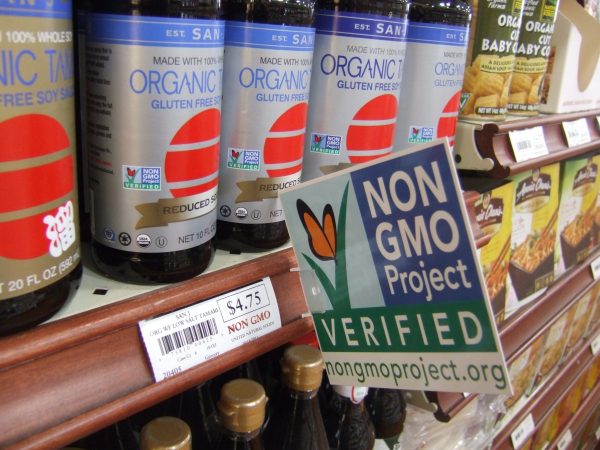The non-GMO market is surviving the coronavirus (COVID-19) pandemic with grain suppliers reporting good demand for their products. But non-GMO exports are facing transportation challenges, and farmers could see lower prices for their non-GMO grains.
“Good opportunity for U.S. farmers to grow non-GMO soybeans”
Darwin Rader, international sales manager at Zeeland Farm Services, a supplier of non-GMO soybeans and soybean meal, sees an increased demand for U.S. non-GMO soybean meal from export markets in Asia and Europe.
He attributes this to India’s coronavirus lockdown, which stopped that country’s exports including non-GMO soybean meal. Countries that had been buying non-GMO soybean meal from India have turned to the U.S. for supplies.
“Customers are now saying they want a combination of U.S. and Indian non-GMO soy as insurance to keep the supply chain open. This will be a good opportunity for U.S. farmers to grow non-GMO soybeans,” Rader says.
Tim Daley, production agronomist at Iowa-based Stonebridge, Ltd. says he is pleasantly surprised that the non-GMO market remains strong. Stonebridge exports non-GMO soybeans and ingredients such as textured vegetable protein, soy isolate, and soy milk powder to Asian countries, particularly Japan.
“Our business has slowed down a little but not much,” he says. “Things are going as well as can be expected.”
At Northern Iowa Grain Processors, owner Joel Yorgey sees an increase in his business selling non-GMO and organic soybean meal.
“We picked up a little bit in our business,” he says. “Companies are putting soybean meal in inventory to make sure they have steady supply of protein.”
A representative with a non-GMO soybean processor says he hasn’t seen any negative effects from the pandemic on their U.S. domestic business. “Non-GMO is more of a specialized supply chain,” he says. Still he says it’s too early to tell what the impacts of the pandemic will be.
Ryan Koory, director of economics at Mercaris, says the non-GMO market is similar in some ways to the organic market and could be subject to the same risks as organic.
“Like organic, non-GMO has a stronger grocery store presence than in restaurants. It is also a premium priced product.”
Export challenges
The biggest challenge facing non-GMO grain suppliers is exporting their products. U.S. suppliers like Zeeland, Stonebridge, Pipeline Foods, and others ship non-GMO soybeans and processed soy products to Asian countries.
But the pandemic has forced many countries to close their shipping ports, and suppliers are finding it hard to get shipping containers, which they use to ship their non-GMO products overseas.
“Our biggest challenge is getting containers. There is a backlog of containers waiting to be unloaded,” Daley says. “Some ports are slower, taking in three ships a day when they usually get 12 or 13.”
“When China shut down (due to the pandemic) that affected container availability, but with China coming back online, that’s improving,” Rader says.
The Specialty Soya and Grains Alliance is trying to assure overseas buyers of non-GMO products that the U.S. remains open for business, says the group’s executive director Eric Wenberg.
“We’re trying to dispel some rumors about the U.S. Deals are being done, containers are being loaded but the shipping and transportation system we have is seeing lots of schedule changes,” he says.
Further, Wenberg says that while shipping is seeing some delays, it is still functioning.
“People are going to get what they want if they stay patient and keep communicating,” he says.
Lower prices
Stonebridge is contracting farmers to grow non-GMO and organic soybeans for this year. But Daley also says that prices paid to farmers for non-GMO soybeans are down.
Wenberg agrees. “I think non-GMO growers are looking at a lower average price. But they will retain their margin. It’s just that when the whole commodity market sags it brings even the premium, specialty producer down a little.”
Koory says non-GMO premiums have remained steady for the past few months with non-GMO corn for feed at $.45 per bushel and non-GMO food grade soybeans at $2.50 per bushel
“Non-GMO seed supply chain should be fine”
At the seed level, Tiffany Frash, marketing manager at Spectrum Non-GMO, sees no immediate impacts now on her company’s non-GMO seed business. Spectrum is busy delivering non-GMO corn and soybean seed to farmers around the country.
“We are getting our seed to farms so growers can plant when they are ready,” Frash says. “We have to keep a sense of business as usual while taking all necessary precautions. We want to keep the workforce of farmers safe.”
Seed business hasn’t been as affected as other areas of agriculture because seed was produced in 2019 and supplies have been available. “The seed supply chain should be fine,” Frash says.
Farmers are moving ahead with their planting plans. “Everybody is taking the coronavirus seriously but they have their mind set on getting their crops planted,” Frash says. “Farmers are a resilient group of people.





